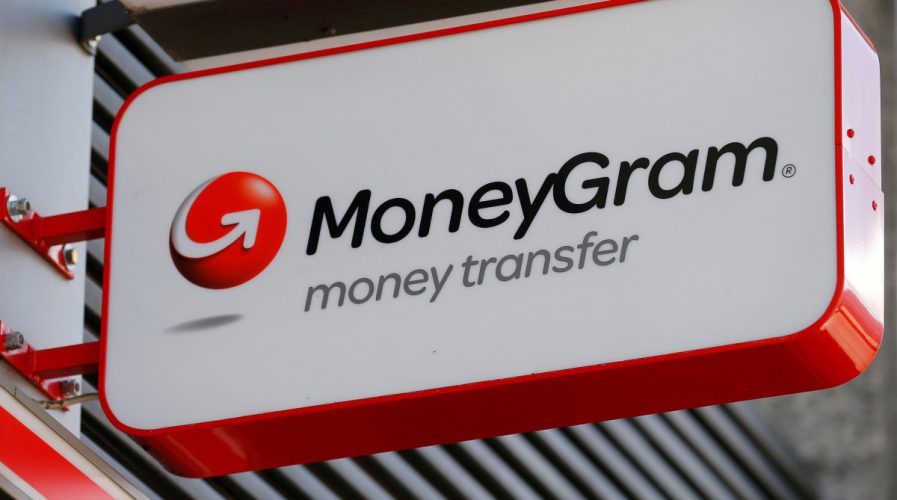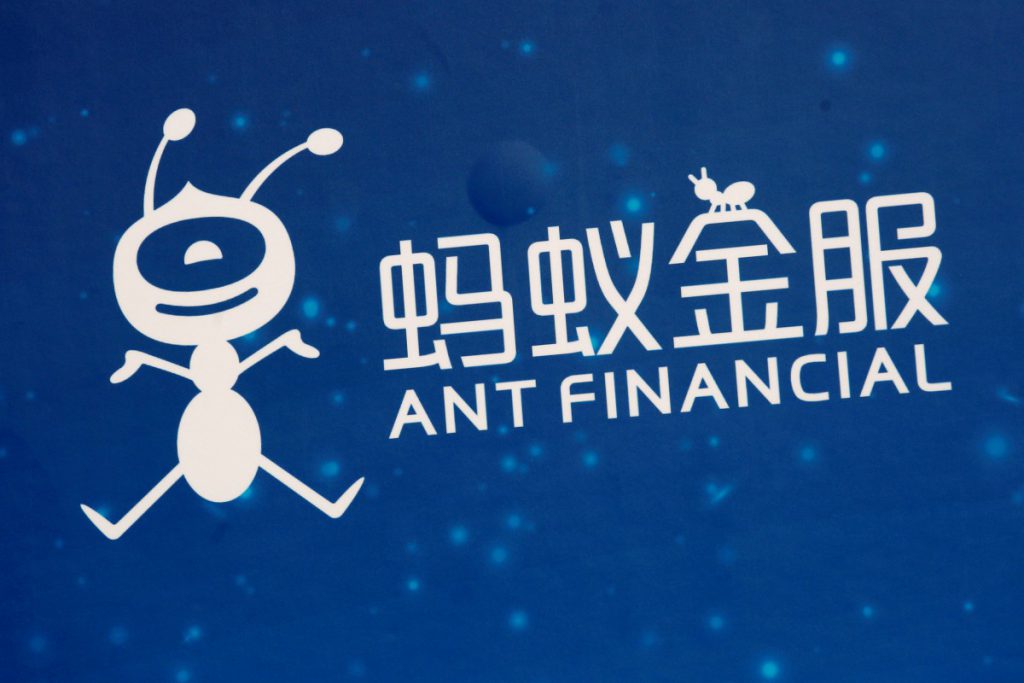
A Moneygram logo is seen outside a bank in Vienna, Austria. Source: Reuters
Bidding war heats up between Euronet and Ant Financial for MoneyGram’s business
JACK Ma-controlled Ant Financial’s bid to enter the US market via an acquisition of money-transfer service, MoneyGram International, is beginning to look a steep uphill climb compared to the done deal that it appeared to be when they first put forward an offer for the company in January this year.
In the early half of the year, Ant Financial put in a US$880 million (US$13.25 per share) deal for the money-transfer business. The deal appeared to be well-received and all parties were already popping the champagne, as they waited for regulatory approval from US governmental competition regulators.
Then all of Ma’s best laid plans went awry when MoneyGram received a higher bid from Euronet Worldwide Inc., who put forward an offer of US$15.20-a-share for full control of the company.
Ant Financial is considering a higher offer for MoneyGram https://t.co/hFBO8Ye9CI #Payments
— Fintech Spark (@FintechSpark) March 30, 2017
MoneyGram initially expressed neutrality, but evidently the smell of more money has enticed it. On March 22, the company entered into a Confidentiality Agreement with Euronet to find out just exactly how much the company was willing to offer to court Moneygram.
The company, in a statement, was quick to point out that they were still tied to a definitive agreement with Ant Financial, and that the shareholders had not changed their outlook on the deal, but of course, the merger has not yet happened.
The game is still afoot!
SEE ALSO: Euronet throws Ant Financial-MoneyGram merger into uncertainty with $1bn bid
Ant Financial first remained optimistic, but that confidence has clearly begun to erode. Late in March, it was reported that Ma was considering a putting a higher offer on the table to counteract Euronet’s bid, as well as the perceived regulatory upsides the latter would offer to Moneygram.
But Ant Financial appears to be mostly confident that its deal will go through. The company immediately launched into talks with CFIUS when the bid was announced, and have said that they have been “going well”, according to sources familiar with the matter.
The other white elephant in the room is CFIUS, otherwise known as The Committee on Foreign Investment in the United States – the regulatory body that oversees the acquisition of US companies by foreign entities.
Despite Ant Financial’s promise to maintain MoneyGram’s Dallas base and Ma’s pledge to President Trump to bring one million jobs to America, the regulatory hurdles it has to cross are no small matters. Euronet has a vested interest in continuously reminding Dallas-based MoneyGram of its own US roots – the local merger would not be subject to the painstaking CFIUS process, to which Ant Financial would be answerable to.
Ant Financial’s regulator problems don’t stop there.

The company has earned the ire of two members of the House of Representatives who have urged CFIUS to conduct a “full and thorough” investigation into Ant Financial’s desired claim on MoneyGram.
“The proposal merits careful evaluation as it would provide Chinese access to the U.S. financial infrastructure, a move that would pose significant national security risks if completed,” Congressman Kevin Yoder and Congresswoman Eddie Bernice Johnson wrote to Steve Mnuchin, the US Treasury Secretary.
Chinese companies used to sink untold amounts of money into acquiring US companies, but in recent years that trend has slowed down in the face of rising anti-globalisation sentiment and growing concern on the part of US regulators who worry that these acquisitions would chip away at American national security.
The go-to example would be the collapse of a planned sale of German semiconductor manufacturer, Aixtron SE, to a Chinese company, a deal blocked by President Barack Obama on advice from CFIUS.
Furthermore, Ma also has to contend with the outsized influence of President Trump, whose nativist and anti-China sentiments are well known. Ant Financial can rest assured that their planned acquisition of MoneyGram would be subjected to intense scrutiny, especially considering it – as with many other Chinese companies – have a fair amount of influence from state entities, thus giving the People’s Republic a foothold from which it could potentially compromise US national security – or at least that’s according to the congressmen.
At least for now, Ant Financial’s deal still appears to be the status quo. However, if MoneyGram decides to renege on its deal and accept Euronet’s offer, Ant Financial has four days to respond with a counter offer. One thing’s for sure: Jack Ma is being pulled into a bidding war where the end is totally uncertain.
READ MORE
- Ethical AI: The renewed importance of safeguarding data and customer privacy in Generative AI applications
- How Japan balances AI-driven opportunities with cybersecurity needs
- Deploying SASE: Benchmarking your approach
- Insurance everywhere all at once: the digital transformation of the APAC insurance industry
- Google parent Alphabet eyes HubSpot: A potential acquisition shaping the future of CRM
